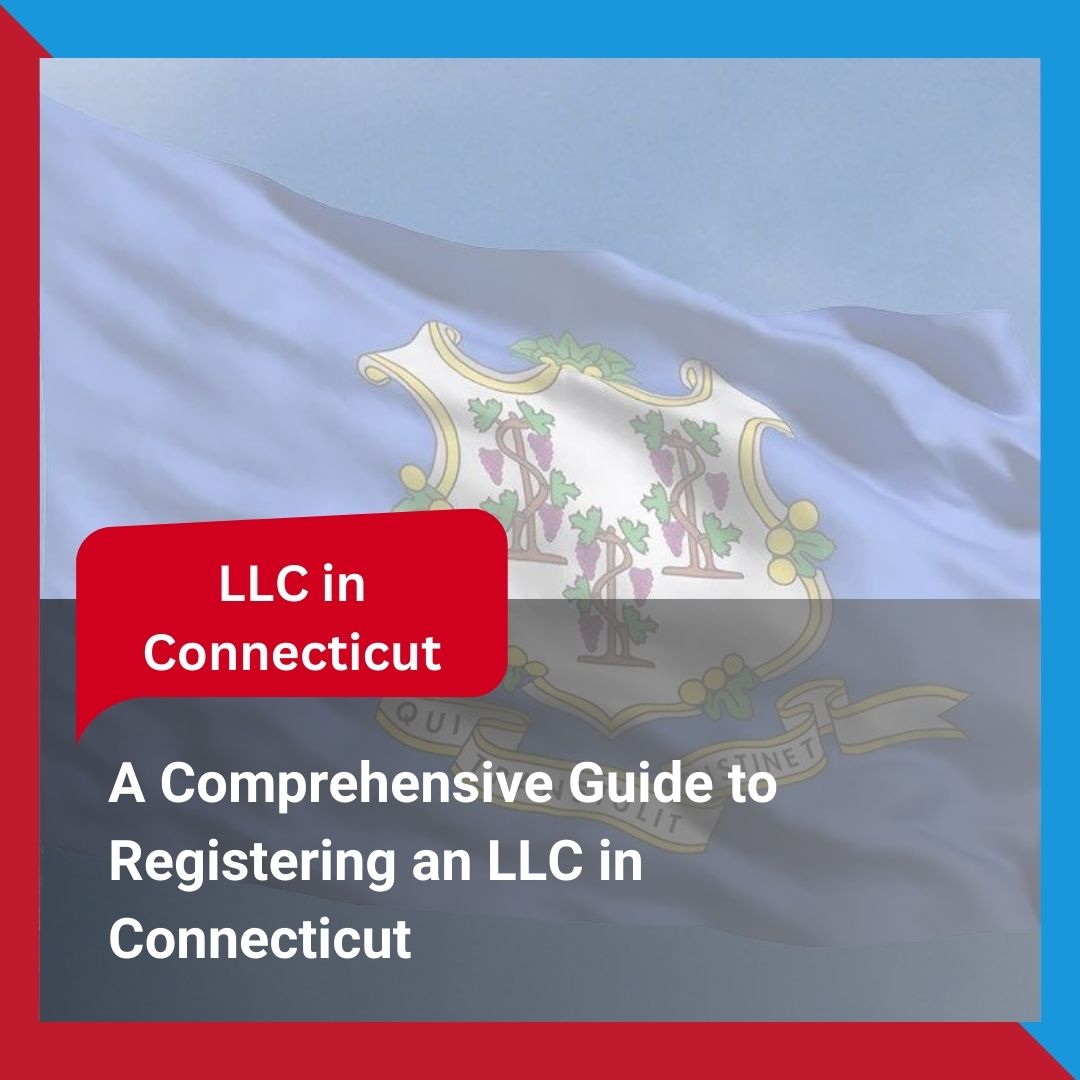Table of Contents
Your Gateway to Establishing an LLC in the Constitution State
Welcome to our comprehensive guide on how to register a Limited Liability Company (LLC) in the vibrant state of Connecticut. Whether you’re a local entrepreneur or a non-U.S. resident looking to expand your business into the United States, forming an LLC in Connecticut can be a strategic move towards achieving your entrepreneurial goals.
In this guide, we’ll walk you through the step-by-step process, requirements, costs, and timelines involved in registering an LLC in Connecticut, with a focus on the unique considerations for non-U.S. individuals seeking to establish a presence in the state.
Why Choose Connecticut for Your LLC?
Before we delve into the registration process, let’s explore why Connecticut might be the perfect destination for your LLC:
- Strategic Location: Situated in the heart of the Northeast corridor, Connecticut offers easy access to major markets in New York City and Boston, making it an ideal location for businesses seeking proximity to key economic hubs.
- Business-Friendly Environment: Connecticut boasts a pro-business climate, with access to a skilled workforce, top-notch infrastructure, and a diverse economy that spans industries such as finance, healthcare, manufacturing, and technology.
- Quality of Life: With its picturesque landscapes, historic towns, and vibrant cultural scene, Connecticut offers an exceptional quality of life for residents and visitors alike, providing a perfect blend of urban excitement and suburban tranquility.
- Innovation and Education: Home to prestigious universities, research institutions, and cutting-edge companies, Connecticut fosters a culture of innovation and entrepreneurship, offering opportunities for collaboration and growth.
Steps to Register an LLC in Connecticut
Step 1: Choose a Unique Name for Your LLC
The first step in the registration process is selecting a unique and distinguishable name for your LLC. Ensure that your chosen name complies with Connecticut’s naming requirements and is not already in use by another business entity. You can verify the availability of your desired name through the Connecticut Secretary of State’s online business name database.
Cost: There is no fee associated with checking the availability of your LLC name. However, once you’ve selected a name, you’ll need to pay a filing fee to reserve it.
Timeline: Name availability can be checked online instantaneously.
Government Agency: Connecticut Secretary of State

Step 2: Prepare and File Articles of Organization
The next step is to prepare and file the Articles of Organization with the Connecticut Secretary of State. This document officially establishes your LLC and provides essential details such as the company’s name, address, registered agent, and purpose.
Cost: The filing fee for Articles of Organization is $120.
Timeline: Once submitted, Articles of Organization are typically processed within 7-10 business days.
Government Agency: Connecticut Secretary of State
Step 3: Appoint a Registered Agent
In Connecticut, every LLC must designate a registered agent who will serve as the official point of contact for legal matters. The registered agent must have a physical address in Connecticut and be available during normal business hours to receive legal documents on behalf of the LLC.
Cost: The fee for appointing a registered agent varies depending on whether you choose an individual or a professional service.
Timeline: This step can be completed concurrently with other registration tasks and typically takes only a few minutes to finalize.
Government Agency: Connecticut Secretary of State
Step 4: Obtain an Employer Identification Number (EIN)
An Employer Identification Number (EIN) is a unique nine-digit number assigned by the Internal Revenue Service (IRS) to businesses for tax purposes. Even if your LLC does not have employees, obtaining an EIN is essential for opening bank accounts, filing taxes, and conducting other financial transactions.
Cost: There is no fee to obtain an EIN from the IRS.
Timeline: You can apply for an EIN online through the IRS website, and the process is typically completed immediately.
Government Agency: Internal Revenue Service (IRS)
Ready to obtain your EIN? Contact us for assistance with the application process.

FAQs
1. Can a non U.S. resident Register an LLC in Connecticut?
Yes, non-U.S. residents can establish an LLC in Connecticut. However, certain additional steps and considerations may apply, such as appointing a registered agent with a physical address in Connecticut and obtaining an Individual Taxpayer Identification Number (ITIN) from the IRS.
2. What is the annual maintenance requirement for LLCs in Connecticut?
LLCs in Connecticut are required to file an annual report with the Secretary of State and pay the associated filing fee. The annual report must be filed online and is due annually on the anniversary of the LLC’s formation.
3. Are there any specific industry regulations for LLCs in Connecticut?
Certain industries in Connecticut may have additional regulatory requirements and licensing obligations. It’s essential to research and comply with any industry-specific regulations that may apply to your business.
4. Is there a minimum capital requirement to form an LLC in Connecticut?
No, Connecticut does not have a minimum capital requirement for forming an LLC. However, LLC members are required to contribute capital to the company as outlined in the operating agreement.
Conclusion
Congratulations on taking the first step toward establishing your LLC in Connecticut! By following the steps outlined in this guide and seeking professional assistance when needed, you can navigate the registration process with confidence.
Remember, each business is unique, so it’s essential to consider your specific needs and circumstances as you embark on this exciting journey.
If you have any questions or require further assistance, don’t hesitate to reach out to our knowledgeable team. We’re here to help you succeed! Want To Form your business somewhere else? Learn about registering an LLC in Delaware and Wyoming.

